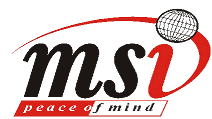Description

Accura Software Financial

Connected Accounting and ERP
Comprehensive Overview: Accura Software Financial vs Connected Accounting and ERP
Accura Software Financial, Connected Accounting, and ERP are three distinct types of software solutions that cater to various business needs in the realm of financial management and enterprise resource planning. Here's a comprehensive overview of each:
a) Primary Functions and Target Markets
Accura Software Financial
- Primary Functions: Accura Software Financial typically focuses on financial management capabilities. This includes accounting, budgeting, financial reporting, and cash flow management. It may also support tax management and financial compliance.
- Target Markets: This product is generally aimed at small to medium-sized enterprises (SMEs) looking for a robust but straightforward financial management tool. It’s suitable for businesses needing basic to intermediate financial oversight without the complexities of full-scale ERP solutions.
Connected Accounting
- Primary Functions: Connected Accounting primarily deals with core accounting functions. These include ledger maintenance, accounts payable and receivable, financial statements, and basic analytics. It may offer some integration with other business systems such as CRM.
- Target Markets: This software is ideal for smaller businesses or startups that require a cost-effective way to handle their accounting needs. It is best suited for companies that need reliable accounting without the broader functionalities of ERP systems.
ERP (Enterprise Resource Planning)
- Primary Functions: ERP systems consolidate various business processes into a singular, comprehensive platform. This includes modules for finance, HR, supply chain, inventory management, customer relationships, and more.
- Target Markets: ERP is targeted at larger enterprises or any organization looking to integrate multiple business functions into a cohesive system. It's suited for businesses aiming for streamlined operations, improved data visibility, and enhanced cross-departmental collaboration.
b) Market Share and User Base
-
Accura Software Financial: Being more specialized and targeted towards SMEs, Accura Software Financial generally has a smaller user base compared to comprehensive ERP solutions. Its market share is typically lower due to the niche demand.
-
Connected Accounting: It captures a modest market share, primarily appealing to smaller businesses and startups. The simplicity and lower cost attract a wide range of users within its target demographic, potentially resulting in a larger user base than Accura Software Financial in small business segments.
-
ERP: This category holds a significant portion of the market share due to its extensive functionality and cross-industry applicability. ERP systems boast a broad user base that includes large corporations and multinational enterprises. Market share for individual ERP vendors can vary widely depending on factors like brand reputation, features, and scalability.
c) Key Differentiating Factors
-
Scope and Functionality:
- The most glaring difference lies in the scope; ERP systems cover a wider range of business processes than either Accura Software Financial or Connected Accounting. ERP integrates various operations from different departments into one platform.
- Accura Software Financial offers more advanced financial management tools than Connected Accounting, making it more suitable for companies seeking deeper financial insights.
-
Complexity and Implementation:
- ERP systems are more complex and typically require a more extended implementation period, often necessitating professional support for integration.
- Connected Accounting is usually easier to implement and use without extensive training.
-
Cost:
- ERP systems generally come with a higher price tag due to their comprehensive nature and wider range of functionalities.
- Connected Accounting tends to be more cost-effective, appealing to smaller companies with tighter budgets.
-
Customization and Integration:
- ERP solutions offer substantial customization and integration possibilities with various other business systems and software, which is often a critical requirement for larger corporations.
- Both Accura Software Financial and Connected Accounting offer limited customization compared to ERP systems, with Connected Accounting possibly being the least customizable.
In summary, each product caters to different business needs and scales, balancing functionality, complexity, and cost to match the requirements of their respective target markets.
Contact Info

Year founded :
Not Available
Not Available
Not Available
Not Available
Not Available

Year founded :
Not Available
Not Available
Not Available
Not Available
Not Available
Feature Similarity Breakdown: Accura Software Financial, Connected Accounting and ERP
When comparing Accura Software Financial, Connected Accounting, and ERP systems, it's important to consider both their commonalities and differences. Here's a breakdown to help understand how these products compare:
a) Core Features in Common
-
Financial Management:
- All three systems provide essential financial management tools such as general ledger, accounts payable, and accounts receivable.
-
Reporting and Analytics:
- They offer various reporting tools that help in generating financial statements, performance analysis, and customizable reports.
-
Budgeting and Forecasting:
- Budgeting tools and forecasting capabilities are common across these products to assist with financial planning.
-
Multi-Currency Support:
- Support for handling transactions in multiple currencies is typically available, crucial for businesses operating internationally.
-
Tax Management:
- Basic tax calculation and management functionalities to ensure compliance with regional tax regulations.
-
Integration Capabilities:
- These systems can integrate with third-party applications like CRM and HRM systems to streamline operations.
b) User Interface Comparison
-
Accura Software Financial:
- Known for a user-friendly interface with straightforward navigation, designed for ease of use for non-technical users. It emphasizes visual data representations and dashboards.
-
Connected Accounting:
- Often designed with a more traditional interface which may include menus and a focus on form-based data entry. It tends to prioritize functionality over aesthetics.
-
ERP Systems:
- Typically have more complex interfaces due to the broad range of functionalities. They often include customizable dashboards and can be tailored to suit the needs of various departments within an organization.
c) Unique Features
-
Accura Software Financial:
- May offer enhanced features like AI-driven analytics or financial modeling tools not present in other systems, focusing on cutting-edge technology and innovation.
-
Connected Accounting:
- Might include niche accounting features such as industry-specific compliance tools or specialized reporting templates tailored to particular business sectors.
-
ERP Systems:
- The most notable distinction is their comprehensive nature, offering a wide array of modules beyond finance, such as supply chain management, HRM, and manufacturing resource planning. ERP systems are typically more holistic, designed to manage all aspects of an enterprise’s operations.
These insights should provide a clear comparison of these financial and accounting software products in terms of their core similarities, user interfaces, and distinguishing features. Always consider the specific needs and context of your business when selecting a software solution.
Features

Not Available

Not Available
Best Fit Use Cases: Accura Software Financial, Connected Accounting and ERP
Accura Software Financial and Connected Accounting and ERP serve different business needs and contexts. Here’s how they cater to various situations and industry requirements:
Accura Software Financial
a) Best Fit Use Cases:
-
Small to Medium Enterprises (SMEs):
- Accura Software Financial is ideal for SMEs that require a robust financial management solution without the complexities of a full ERP system. It provides core financial functionalities like accounting, budgeting, and financial reporting.
-
Startups:
- Startups that prioritize managing their finances accurately and efficiently would benefit from Accura Software Financial. It provides essential financial tools and can scale with the company’s growth.
-
Professional Services:
- Businesses in professional services such as law firms, consulting, and accounting firms that require detailed financial tracking and reporting can make effective use of Accura’s comprehensive financial features.
-
Retail and E-commerce:
- Retailers and e-commerce businesses that need streamlined accounting processes, inventory management, and sales analytics are well-suited for this software.
-
Non-profits:
- These organizations can benefit from the software’s donation and grant tracking, fund management, and donor reporting capabilities.
Industry Verticals:
- Focused primarily on service-based industries or sectors where financial precision is paramount and operational complexities are limited.
Connected Accounting and ERP
b) Best Fit Use Cases:
-
Mid-sized to Large Enterprises:
- Businesses that require an integrated solution for various departments—such as finance, supply chain, human resources, and manufacturing—would benefit greatly from Connected Accounting and ERP.
-
Manufacturing and Distribution:
- The ERP software is well-suited for manufacturing and distribution companies that need to integrate inventory management, production processes, and supply chain logistics with financial systems.
-
Construction and Real Estate:
- Companies in the construction industry can leverage project management, job costing, and contract management features, along with detailed financial reporting.
-
Healthcare:
- Healthcare organizations benefit from integrated systems that manage patient billing, equipment inventory, staffing, and financial operations.
-
Technology and Software Development:
- Firms in the tech industry can utilize the project management and R&D cost tracking capabilities of the ERP system to manage complex projects and budgets.
Industry Verticals:
- Designed for sectors that require extensive cross-departmental data integration including manufacturing, healthcare, construction, and technology.
How These Products Cater to Different Industries and Company Sizes:
-
Accura Software Financial is specialized for small to medium-sized businesses that need strong financial foundations without the vast intricacies of a complete ERP system. It supports industries where financial transparency and efficient management of resources are critical, such as professional services, retail, and non-profit organizations.
-
Connected Accounting and ERP caters to larger enterprises that require a seamless integration of financial operations with other business processes. This solution supports businesses with complex structures by offering comprehensive modules that streamline operations across various departments. It is highly adaptable to different industries that demand a holistic approach to managing business processes effectively.
In summary, the choice between Accura Software Financial and Connected Accounting and ERP largely depends on the scale of operations and the need for integrated systems versus focused financial functionalities. Each product is designed to enhance efficiency and accuracy in its respective use case scenarios.
Pricing

Pricing Not Available

Pricing Not Available
Metrics History
Metrics History
Comparing undefined across companies
Conclusion & Final Verdict: Accura Software Financial vs Connected Accounting and ERP
To provide a well-rounded conclusion and final verdict for Accura Software Financial and Connected Accounting and ERP, let's examine each of the points you've mentioned.
a) Best Overall Value:
Considering all factors such as pricing, features, scalability, ease of use, customer support, and integration capabilities, Connected Accounting and ERP often provides the best overall value. This platform typically offers a comprehensive suite of features that support both accounting and enterprise resource planning, making it highly versatile and suitable for growing businesses. The integration of accounting with ERP functionality can help companies streamline operations, reduce redundancies, and improve decision-making processes.
b) Pros and Cons:
Accura Software Financial:
-
Pros:
- User-friendly interface with intuitive navigation.
- Strong focus on core financial features, making it suitable for businesses with straightforward accounting needs.
- Generally lower cost compared to more comprehensive solutions.
-
Cons:
- Limited ERP features, which could be a drawback for businesses wanting more diversified operational control beyond accounting.
- May require additional integrations for extended functionality, potentially increasing costs and complexity.
Connected Accounting and ERP:
-
Pros:
- Comprehensive integration of accounting and ERP features, offering a holistic operational platform.
- Excellent scalability, supporting both small businesses and larger enterprises as they grow.
- Potential for improving operational efficiency through centralized data and processes.
-
Cons:
- Steeper learning curve due to the breadth of included features.
- Higher initial costs and more complex implementation compared to simple accounting software.
c) Recommendations for Users Deciding Between Accura Software Financial and Connected Accounting and ERP:
-
If your business is primarily focused on basic accounting needs and prefers a more straightforward, cost-efficient solution, Accura Software Financial may be the appropriate choice. It's well-suited for smaller businesses or those with limited accounting requirements.
-
On the other hand, if your organization is looking to streamline not only financial management but also operational processes across different departments, Connected Accounting and ERP would be more advantageous. It is ideal for businesses anticipating growth or those already operating on a larger scale that need robust, integrated solutions.
-
Consider the long-term vision of your business. If you anticipate significant growth or diversification in your operational processes, investing in a more comprehensive platform like Connected Accounting and ERP might offer greater long-term value despite higher upfront costs.
Overall, the choice between these products should be aligned with your business goals, size, and the complexity of your operations. Conducting a thorough needs assessment and possibly seeking a demonstration or trial period could facilitate a more informed decision.
Add to compare
Add similar companies




